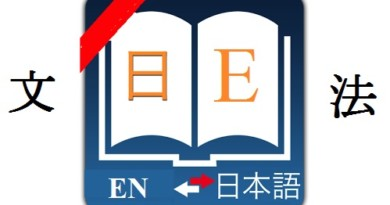Compare がち gachi and 気味だ gimida
Hello everyone! Suppose there is a situation like this: You want to ask for permission to take a day off because you’re tired, which expression will you choose to express the idea “I’m tired”, (疲れ) がち or 気味? To help you understand the usage of がち and 気味だ, in this post, Learn Japanese Daily will introduce to you the lesson: Compare がち gachi and 気味だ gimida

Similarities
Both grammar structure mean “to be in the state of N”. Both structure are used with nouns.
Differences
がち gachi
がち means “In all cases, there is a higher percentage of N”, “tend to be like N”, “to be often N”. It usually describes “common tendency” of a person or action.
Nouns used with がち often indicate negative emotions like anxiety, dissatisfaction…
In addition, がち can be used with other word forms in the form「NがちにB」, which means “to do B with a tendency of N”.
Example :
最近石田さんは授業をサボりがちだね。
Saikin Ishida san ha jugyou wo sabori gachi da ne.
Ishida tends to skip classes recently. (This is the state that often happens these days, not the sudden state).
僕は必要より高いカロリの料理を食べ過ぎがちだ。
Boku ha hitsuyou yori takai karori no ryouri wo tabesugi gachi da.
I tend to eat too much calorie food than necessary.
この頃あの子は私のクラスで居眠りがちですね。
Kono goro ano ko ha watashi no kurasu de inemuri gachi desu ne.
Recently, that child often falls asleep in my class.
気味だ gimida
気味だ means “like N/ looking N”. It is usually used to talk about the current state of the subject.
Nouns used with 気味だ often indicate negative emotions like anxiety, dissatisfaction…
Example :
俺は今日、何となく疲れ気味だ。
Ore ha kyou, nantonaku tsukare gimi da.
For some reasons, I feel tired today. (“to be tired” is the state that is happening right now, not every day.)
君の取った食べ物は栄養不バランス気味だ。
Kimi no totta tabemono ha eiyou fubaransu gimi da.
The food you took seems to be nutritional imbalance.
A「中村君、君の顔色が悪いですね。どうしたの?」
B「ちょっと風邪気味だ…。」
A : “Nakamura kun, kimi no kaoiro ga warui desu ne. Doushitano?”
B : “Chotto kaze gimi da…”
A: “Nakamura, your complexion is bad. What’s wrong?
B: “I caught a cold…”
Exercise for consolidating knowledge :
Choose the correct answer :
あの国の人口は10年間を経って増加(ぞうか)(がち・気味)です。
始めて専門家(せんもんか)の前に自分で研究(けんきゅう)した結果を公表するのは、私はちょっと緊張(きんちょう)(がち・気味)です。
最近田中課長は会社の方針(ほうしん)に違う命令(めいれい)を出し(がち・気味)だ。
彼はこの頃出世(しゅっせ)して毎日忙しくて運動不足(がち・気味)だ。
父は年を取って、周りの人の名前を忘れ(がち・気味)なので、家族全員はとても心配です。
お前は何がいいと思ったらすぐにすると決心したのに途中(とちゅう)であきらめ(がち・気味)だ。
In this post, Learn Japanese Daily has helped you compare がち gachi and 気味だ gimida.
See other similar lessons at category: japanese grammar dictionary
